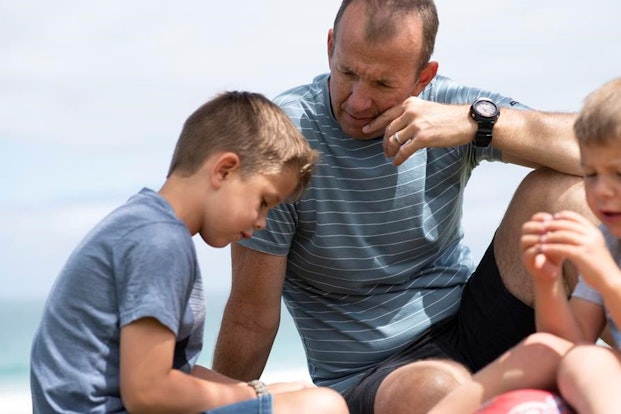The lost art of conversation
Genuine conversations appear to be somewhat of a luxury these days. Whether it is sitting with a friend in the sun with a cuppa and having a chat. Sitting around a fire with a good glass of red wine discussing the meaning of life. Taking a walk with your kids to talk about personal or global issues. There seems to be less and less time for this most important of things.
It seems that the world is crowding in on us, and technology is partly responsible for that. Being constantly connected (and therefore bombarded with an irrepressible influx of information and a constant cacophony of communication) takes our time and absorbs our energy.
At the heart of good conversation is the art of listening. To listen well, we must be curious about what the other person has to say and what is going on in their lives. If all we want to do is to make sure they hear us, then conversation becomes a competition, where there has to be a winner and a loser; where one person is right and the other wrong, and having the last word is all that matters.
We should all strive to get better at listening to our friends – giving them time to talk, and listening to the way they say things, or listening to what they do not say, what they leave out, or what they are saying by their body language - which may contradict their actual spoken words.
It is hard to listen to views with which we disagree: terrorists, racists, bigots; views that contradict our world view. There is a wonderful quote from Martin Luther King, in which he says,
"Darkness cannot drive out darkness, only light can do that. Hate cannot drive out hate, only love can do that."
That is not to say that hatred and cruelty in their many forms should not be resisted; of course, they should be. But we need to put aside how angry and outraged those opinions make us feel, and move beyond simply trying to silence those views, so that we can try to understand why those people have those opinions. Because if we are not willing to at least explore why they think and feel the way they do, we can never hope to persuade them to see the world differently. Muzzling them, refusing to let them speak, silencing them before they have spoken does not prevent such opinions from existing. The internet has shown us this.
Listening goes far beyond talking with another person. We need to get better at listening to our bodies. Perhaps technology drowns out the message and occupies our minds so that it is easier to ignore that gut instinct deep within us. For some people, their phones and watches are doing the listening. But our bodies tell us when we need to rest; our bodies remind us what is right and wrong; our bodies warn us of approaching danger, and it is only by listening to what is inside us that we can lead optimal lives.
We are not listening closely enough to the past. We would do well to seek out those voices which have been kept silent and which can teach us so much more about who we are. Our country in particular has a strained relationship with its past, but if we are not prepared to sit with those uncomfortable sounds of the voices speaking about what happened and sharing with us the problems this has caused, it will be hard for us to build a better future for all Australians. This is something we must teach our children to do better than we have done.
We do not seem to be listening to the natural world. The singing of birds, the sound of the ocean's waves, the wind in the trees – there is restorative power in such things if we remember to listen. And we appear unwilling to listen to the deeper messages the planet is sending us. Perhaps this is something that our children will have to teach us to do.
These are good conversations to have, not because they are easy, or the solutions are simple, or we will all agree, but because they are not and we won't always agree. But I have often thought we would get a lot further along the pathway to understanding and consensus if we approached such conversations thinking, "I might be wrong". Imagine that.
Parenting Boys
The Rotary Club of Cambridge are hosting a presentation by Helen Davidson on Wednesday 29 May at 9.00am on the topic: "Parenting Boys: the Highs, the Lows, the Joys, the Woes". Please contact Jeannette Wood at jp2wood@bigpond.com. There is a $5 charge.
The Fathering Project
We are in the process of organising a presentation from The Fathering Project (TFP) at Scotch College. This is an organisation dedicated to inspiring, encouraging and supporting fathers and father figures in our community to be more present and pro-active in children's lives. These people can be fathers, grandfathers, uncles, coaches, teachers or any other positive male role model in a boy's life. More information about TFP can be found at their website (https://thefatheringproject.org). A separate information sheet/invitation will be sent out shortly, the presentation will be on Thursday 13 June, with drinks from 7.00pm for a 7.30pm start, finishing at 9.00pm. I strongly suggest joining their mailing list to receive weekly inspiration and tips – I have reproduced one below:


Weekly Tip: Listen to your son
- Listen even when you are afraid to hear what they want to tell you.
- Do not boomerang discussion back to yourself.
- Ask yourself what it is like from their shoes.
- Ask questions about their favourite websites and about their friends.
- Do not solve, criticise or judge.
- You want your son to come to you when they have a problem or have made a mistake. When they do tell you about issues – express your feelings respectfully. Do not 'explode', instead, listen carefully.
- Tell them if you think they have made a bad choice, but ensure they know they are still loved and supported.